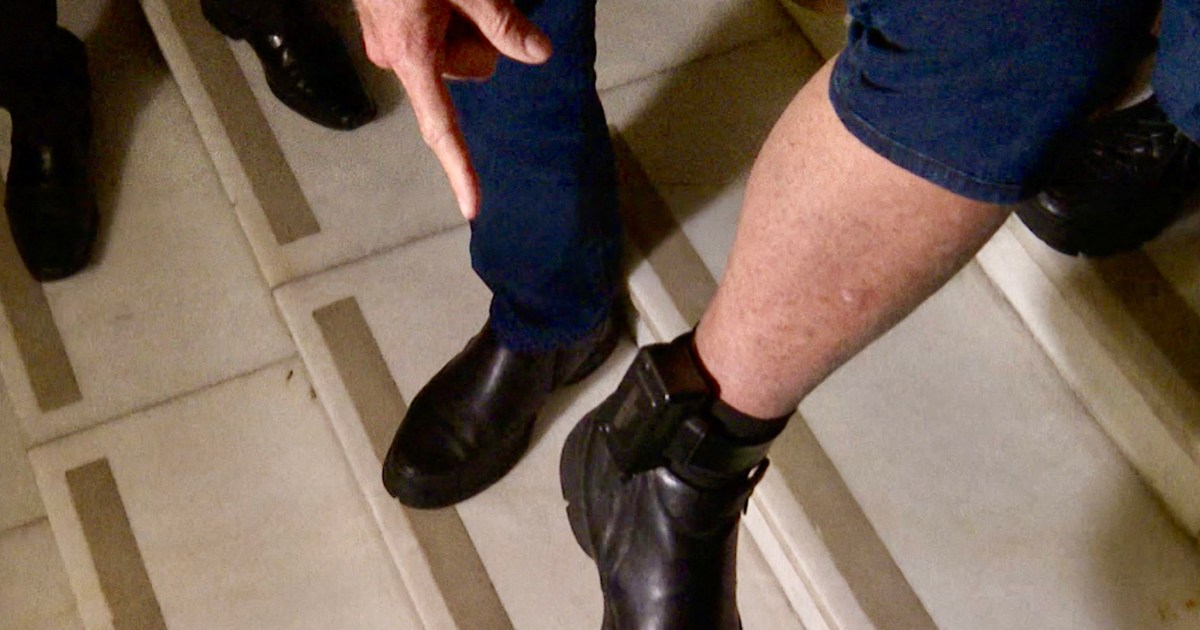Barry Morphew, who is awaiting trial in connection with the death of his wife, Suzanne Morphew, is expected to be released from the Alamosa County jail in Colorado after supporters raised the funds necessary to post his $3 million bond. His attorney, David Beller, confirmed the development following a private fundraising effort.
According to Beller, backers rallied to cover the bondsman’s fee — typically about 10% of the total bond — allowing a bond agent to post the full amount with the court. Colorado Public Radio first reported that the bond was secured, though the identities of those supporters remain undisclosed at their request.
“They have asked to remain anonymous,” Beller said, citing safety concerns. “And that frankly is for their own safety, with all the vitriol that the case has brought and all the doxing.”
Beller added that the Morphew family, including Barry’s two adult daughters, has faced threats and bullying since his arrest. The daughters have continued to support their father publicly, a stance they’ve maintained since Suzanne was first reported missing on Mother’s Day in 2020.
Bond Posted, Release Conditions Set
Local outlet the Alamosa Citizen reports Morphew could be released as soon as Friday, October 31, or Saturday, November 1, once two key requirements are met: he must be fitted with a GPS monitor and secure a residence approved by the court. Upon release, Morphew will be on home detention. He will be permitted to leave only for court, legal meetings, and medical appointments; the court may also authorize travel for work if he obtains employment and receives prior approval.
Those restrictions are typical in high-profile cases with significant bond amounts, ensuring compliance while allowing limited, monitored movement tied to legal and health needs. Any violation of these terms could lead to revocation of bond and a return to custody.
Beller said his client “remains hopeful” about the trajectory of the case. “He is discouraged by his inability to be able to publicly address the allegation against him. He’s concerned about the welfare of his family, specifically his girls,” the attorney noted.
Once released, Morphew will begin paying for his own defense. While he remained in custody, the state covered certain legal costs because defendants held in jail are typically deemed indigent for the purposes of representation. Beller confirmed that arrangement will end once Morphew is out on bond.
How The Morphew Case Reached This Point
Morphew was first arrested in 2021 and charged in Suzanne’s disappearance and presumed death. At the time, prosecutors struggled to meet court-ordered discovery deadlines, in part because Suzanne’s body had not been recovered. The case was dismissed without prejudice before trial, with the understanding it could be refiled if new evidence emerged.
In 2023, investigators discovered Suzanne’s remains in Alamosa County. A subsequent autopsy, completed in 2024, found a unique mixture of animal tranquilizer-related chemicals in her system. Authorities have previously indicated that Morphew allegedly had access to similar substances. Those findings were among the developments that reignited investigative momentum.
In June, a grand jury indicted Morphew on murder and related charges, according to the Colorado Bureau of Investigation. He was later arrested in Arizona, where authorities allege he had been living under the alias “Lee Moore.” The indictment returned the case to the criminal docket, positioning it for pre-trial proceedings and, ultimately, a jury trial unless a plea or dismissal occurs.
Throughout, Morphew has maintained his innocence. The defense has consistently criticized aspects of the investigation and previous prosecution, while prosecutors have argued that new forensic and investigative work has materially strengthened their case. With bond now posted, both sides are poised to resume litigation on a more conventional schedule outside the constraints of pretrial detention.
What Comes Next
The court will continue to supervise Morphew’s release, including GPS monitoring and housing approval. Standard pre-trial conditions generally require defendants to avoid contact with witnesses, appear at all hearings, and adhere to travel restrictions. Any request to modify conditions—such as employment-related travel—must be approved by the court in advance.
As the case moves forward, the focus will likely shift to motion practice and evidentiary hearings, where both parties can challenge and test key pieces of evidence before trial. The autopsy findings and the grand jury’s conclusions are expected to feature prominently in the state’s presentation, while the defense is likely to scrutinize investigative methods, timelines, and the provenance of forensic conclusions.
Beller reiterated that his client is eager to meet the allegations head-on in court, while also underscoring the personal toll the case has taken on Morphew’s family. “He remains hopeful,” the attorney said, emphasizing that the priority for now is ensuring compliance with release conditions and stabilizing family life as proceedings continue.
With bond secured and conditions in place, Morphew’s release marks a significant procedural turn in one of Colorado’s most closely watched true-crime cases. The legal battle now shifts from the confines of jail to the courtroom, where the evidence—and only the evidence—will determine what comes next.















































































































